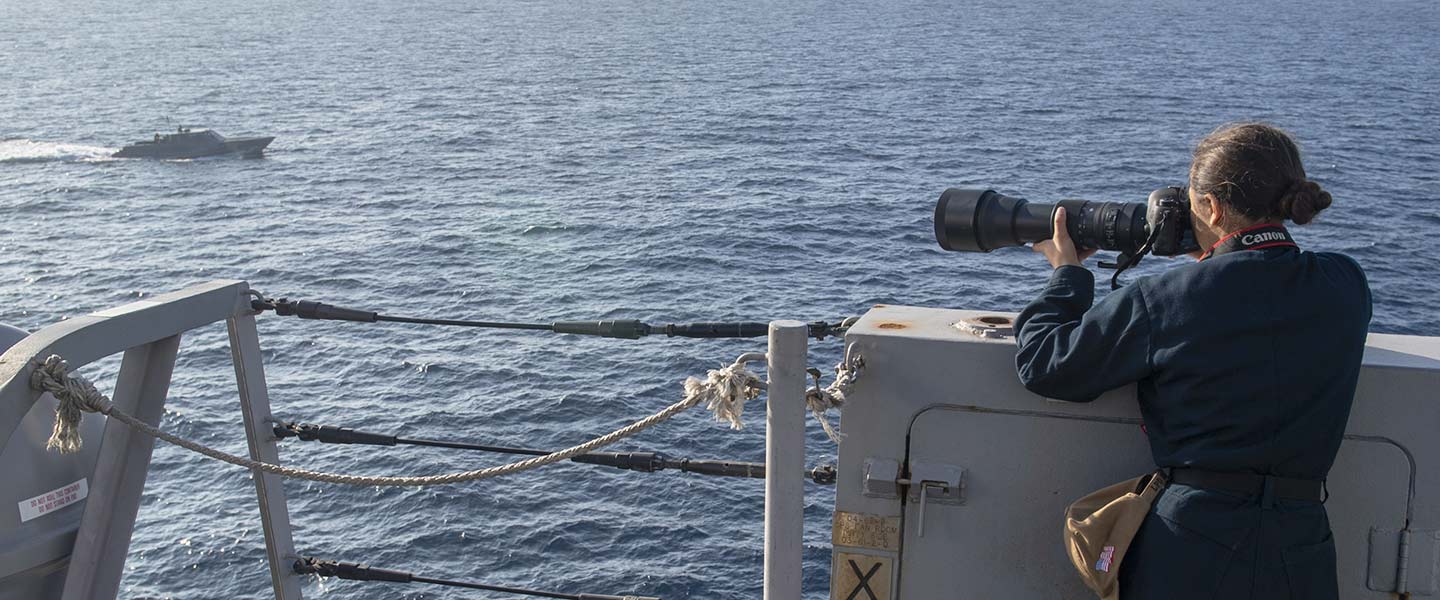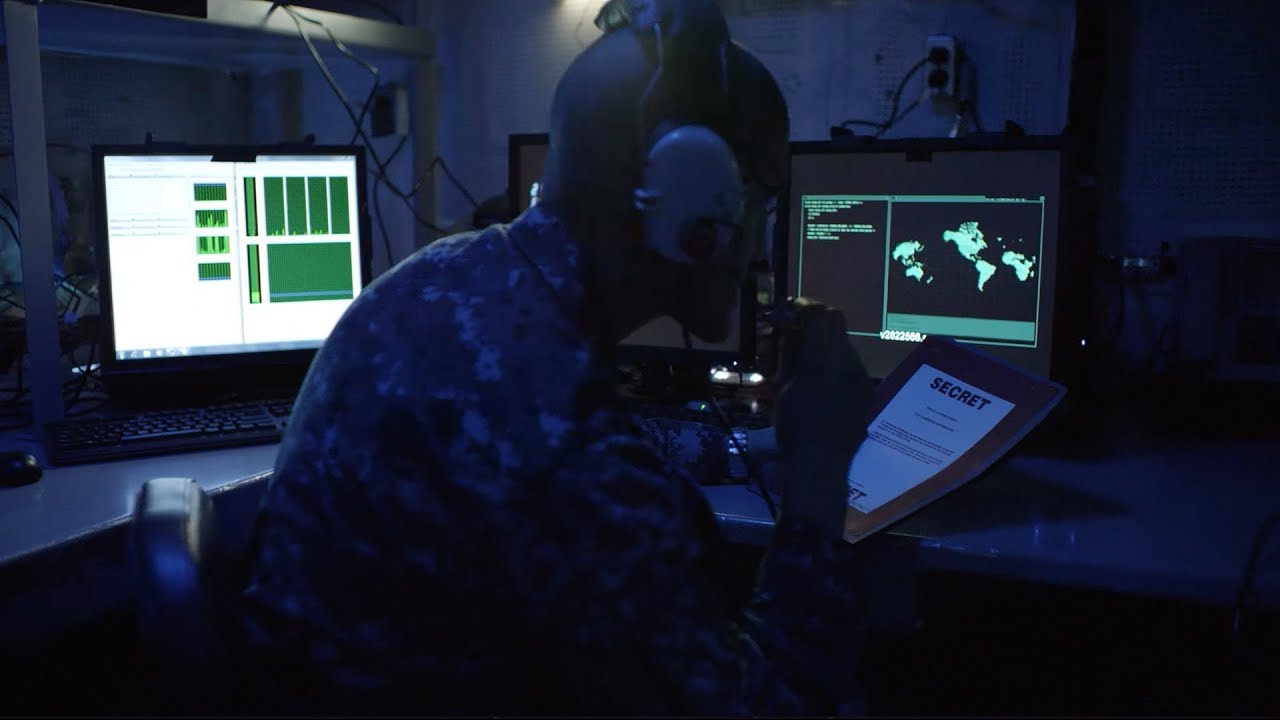What to Expect
More Information
Responsibilites
Cryptologic Technicians Collection (CTRs), serve as experts in intercepting signals of all types. Their responsibilities include:
- Analyzing and reporting on communication signals using state-of-the-art computers, specialized computer-assisted communications equipment, video display terminals and electronic/magnetic tape recorders
- Exploiting signals of interest to identify, locate and report worldwide threats
- Providing tactical and strategic signals intelligence, technical guidance and information warfare support to surface, subsurface, air and special warfare units
Within Navy Cryptology, there are distinct focus areas that have their own training paths and job descriptions. Each CT role works under the oversight of Cryptologic Warfare Officers (four-year degree required) or Cyber Warfare Engineers (four-year degree required) – and potentially both.
Work Environment
Cryptologic Technicians perform a variety of duties worldwide, at numerous overseas and stateside shore commands, aboard surface ships, aircraft and submarines and with Naval Special Warfare. They generally divide time between assignments ashore and afloat.
Cryptologic Technicians Collection can expect a clean, orderly working space in an indoor setting, frequent contact and coordination with others and close supervision.
As a CTR, you may work independently or as part of small, coordinated teams.
Training & Advancement
Upon completion of initial training at Recruit Training Command Great Lakes (known as Boot Camp), you’ll report for specialized training, including:
Class “A” Technical School (18 weeks) in Pensacola, FL, for training in computer fundamentals, security procedures, mathematics, signals theory, digital communications technologies, equipment operations, satellite communications and fundamental reporting techniques.
After you’ve completed training, you may be assigned to a three-year tour of duty to selected homeported ships or P-3 aircraft based in the United States or overseas. As a CTR, you can expect approximately 60% of your assignments to take place at sea.
To learn more about the specific training path for Cryptologic Technicians Collection, connect with a recruiter.
Promotion opportunities are regularly available but competitive and based on performance.
Advanced Training
Advanced training as a Cryptologic Technician Collection may also be available during later stages of your career. For those with further leadership aspirations and a college degree, Officer roles may be available, providing opportunities to lead and train others.
Post-Service Opportunities
Specialized training received and work experience gained in the course of service can lead to valuable credentialing and occupational opportunities in related fields in the civilian sector. Your specialized security clearance can also open doors in a variety of cyber related fields normally unavailable to civilians.
Education Opportunities
Beyond offering access to professional credentials and certifications, Navy technical and operational training in the field of intelligence can translate to credit hours toward a bachelor’s or associate degree through the American Council on Education.
You may also continue your education through undergraduate degree opportunities like the Navy College Program and Tuition Assistance and the Post-9/11 GI Bill.
Qualifications & Requirements
A high school diploma or equivalent is required to become an Enlisted Sailor in the Navy. Those seeking a Cryptologic Technician Collection position must be U.S. citizens who can meet eligibility requirements for a Top Secret/Sensitive Compartmented Information security clearance.
They should have good speaking and writing skills, a good memory, resourcefulness, curiosity, good character, adaptability to do detailed work and an aptitude for arithmetic reasoning and record keeping. The desire and ability to work with others as part of a team, to deal with ideas and information and a talent in operating high-powered computers and electronic devices are also important.
Part-Time Opportunities
There are part-time opportunities available as a Cryptologic Technician Collection.
Serving part-time as a Navy Reserve Sailor, your duties will be carried out during your scheduled drilling and training periods. During monthly drilling, Cryptologic Technicians Collection in the Navy Reserve typically work at a location close to their homes.
For annual training, Cryptologic Technicians Collection may serve anywhere in the world, whether on a ship at sea or at bases and installations on shore.
Take a moment to learn more about the general roles and responsibilities of Navy Reserve Sailors.
Most of what you do in the Navy Reserve is considered training. The basic Navy Reserve commitment involves training a minimum of one weekend a month (referred to as drilling) and two weeks a year (referred to as Annual Training) – or the equivalent of that.
Cryptologic Technicians Collection in the Navy Reserve serve in an Enlisted role. Before receiving the ongoing professional training that comes with the job, initial training requirements must be met.
For current or former military Enlisted service members, prior experience satisfies the initial Recruit Training requirement, so you will not need to go through Boot Camp again.
For those without prior military experience, you will need to meet the initial Recruit Training requirement by attending Boot Camp in Great Lakes, IL. This training course will prepare you for service in the Navy Reserve and count as your first Annual Training.
































































































































